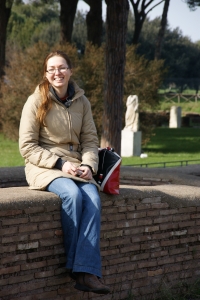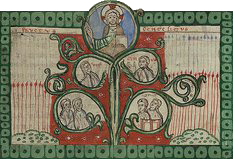Inter-cultural Transmission of Intellectual Traditions in the Middle Ages and the Early Modern Period. A comparative perspective
Participants
Karolina Wiśniewska

Central European intellectual tradition was challenged by the actual and imagined aspects of the encounter with the Turks, perceived as the “cultural others of Europe”. The immediate confrontations between Turkish and European armies took place in St Stephen’s kingdom and found their prompt reflection in numerous cheap prints and broadsheets describing the harsh theater of war, meant mainly for German-speaking readers. Popularizing information about the Turkish conquests in Europe and their military achievements, these printed relations excited interest in the Turkish threat and in the culture and history of Turks. Especially the easily affordable and transmittable prints such as ‘Neue Zeitungen’, disseminating iconic and verbal messages, had a significant capacity of shaping the common understanding of political and cultural realities of a Europe struggling with the Turkish threat. As such they served as an important means of negotiating and reconciling the image of Turks. In my work I would like to examine how these visual and literary representations constructed imagined representations of Turks in the German-speaking territories, which had mainly indirect contact with the Turks. On this basis I would also like to draw some conclusions on the character of sixteenth century Orientalism, and the way it influenced the knowledge about the Turks in early modern Central Europe.
Karolina Wiśniewska is a PhD Student in the Institute for Interdisciplinary Studies “Artes Liberales”, University of Warsaw, working on a dissertation on identity discourse in early modern Hungary. Written under the supervision of prof. Jerzy Axer and prof. Antoni Ziemba within the International PhD Program (MPD), the thesis is devoted to iconic and verbal narrations of Latin early printed books concerning the history of St Stephen’s Realm. Apart from interest in Hungarian culture, her academic fascinations encompass reception of Classical tradition in art, Byzantine heritage, Armenian culture, identity matters and artistic production in multicultural spaces. In her academic work, Karolina Wiśniewska draws on experience acquired at the Institute of Classical Philology and at the Institute of History of Art of the University of Warsaw as well as at the Freie Universität Berlin (Katholischer Akademischer Ausländer-Dienst scholarship) and Oxford University (Polish Science Fundation scholarship within MPD program). Apart from conference tourism (Vergangenheitspolitik in Osteuropa, workshop in Nurnberg; 22nd Congress of Byzantine Studies in Sophia, 8th Annual Graduate Student Colloquium in Armenian Studies at the University of California) her favorite activity is backpacker travel to the Middle East and the peripheries of Europe.



